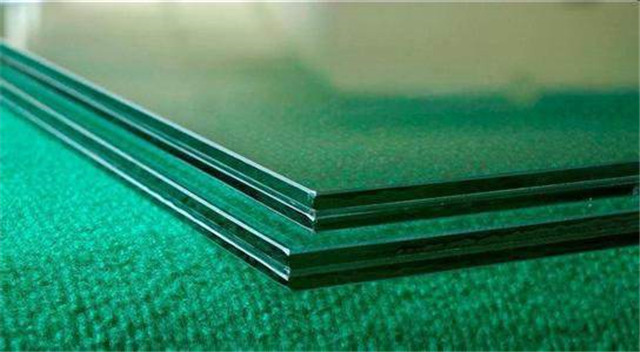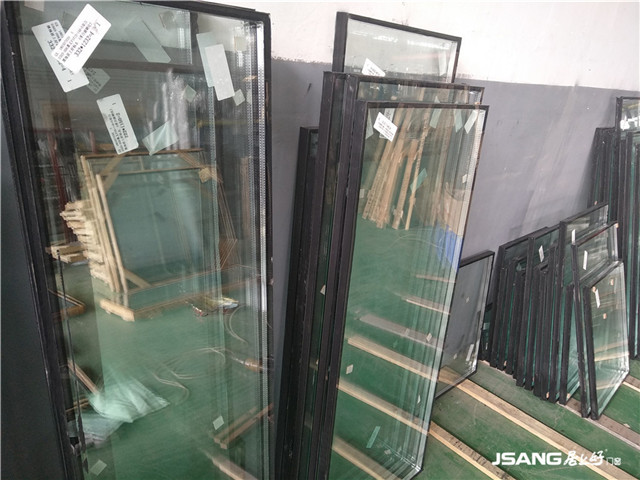In order not to be disturbed by all kinds of noise in our life, many families have installed soundproof doors and windows. Soundproof door glass with sound insulation performance needs to be used on the window. Currently, glass with sound insulation effect is commonly used, which can be divided into laminated glass and hollow glass. Each has different sound insulation methods and different effects. In order to achieve better sound insulation effect, we need to understand the sound insulation principle of these two kinds of glass, compare the sound insulation effect, and select more suitable sound insulation doors and windows.
I. Related concepts
sound insulation (sound insulation) uses dense materials to isolate sound from a certain space. The noise reduction effect of sound insulation materials is called sound insulation. Glass with sound insulation performance is called sound insulation glass. Sound insulation glass is a kind of glass product that can shield sound to a certain extent. It is usually laminated glass with double-layer or multi-layer composite structure, the sound insulation impedance glue (membrane) in the middle of laminated glass plays a key role in the weakening and attenuation of sound transmission. Glass products with sound insulation function include hollow glass.
Resonance: resonance refers to the situation that a physical system vibrates at a larger amplitude than other frequencies at a specific frequency. Resonance is also called "resonance" in acoustics ", it refers to the phenomenon that an object sounds due to resonance. For example, two tuning fork with the same frequency are close to each other. When one of them vibrates, the other will also sound.
The principle of sound insulation effect produced by sound insulation glass: all kinds of outdoor sound sources produce vibration and noise, and noise sound waves spread through air medium. When the noise is transmitted to the sound insulation glass door window, then, through the special structure of sound insulation glass, it gradually decays to the state that human hearing is not easy to hear. Especially when the noise passes through the sound insulation impedance glue, the medium frequency noise and the high frequency noise are absorbed, twisted, shock absorption and attenuation by the sound insulation impedance glue, which can effectively filter out the medium and high frequency noise, finally, the noise entering the room is only about 5%. The medium and high frequency noise is gone, and the feeling of the room suddenly softens down, so it is much more comfortable to stay indoors. The so-called: in the downtown, the dream of living in the countryside is realized.
Soundproof glass
II. Comparison of sound insulation between laminated glass and hollow glass
The sound insulation of all materials generally follows the law of mass, that is, the surface density (product of material density and thickness) determines the overall sound insulation; Each sound insulation materials has the consistent effect of sound insulation performance, the principle of noise reduction and vibration control lies in: Disturbing the frequency of sound waves, reducing resonance, blocking the propagation of sound, and reducing the frequency range without noise.
Laminated the sound insulation performance of glass is mainly determined by the actual thickness of glass, the thickness of laminated film, and the soft vibration damping performance of laminated film; general laminated glass is actually PVB interlayer film of the main component of polyvinyl butyral (such glass is commonly known as "PVB glass"). However, the professional sound insulation glass is a sound insulation film (sound insulation impedance glue), which plays a key role in weakening and filtering sound transmission, glass products with sound insulation function are actually laminated glass. However, if the sound insulation film (sound insulation impedance glue) in laminated glass is softer and more elastic, it will increase the sound insulation damping coefficient of laminated glass, thus improving the sound insulation capacity of laminated glass. The sound insulation capacity of ordinary PVB glass is only 28-34 decibels, and the sound insulation capacity of sound insulation film (sound insulation impedance glue) can reach 35-40 decibels or even higher. The coincidence effect of laminated glass appears at about 3000Hz, which is far away from the medium and low frequency traffic noise. It is an ideal sound insulation glass used in busy traffic trunk roads at present.

Laminated glass
Although laminated glass also has good sound insulation effect, it is still lacking. The damping material of the middle layer will gradually reduce its performance due to the increase of temperature, however, after adjusting the composition of the intermediate membrane and professional technical treatment, it can achieve quite good sound insulation effect, which is incomparable to hollow glass and vacuum glass. Of course, the sound insulation effect of laminated sound insulation glass is also different due to different technical contents of different manufacturers.
The sound insulation performance of hollow double-layer tempered glass is mainly determined by the actual thickness of two layers of glass (for example, hollow glass: 5 + 9Air +5, the actual thickness of glass: 10mm) and the distance between two pieces of glass; the structure of all hollow glass has standing-wave resonance, which leads to the coincidence effect between sound waves in a certain frequency band and hollow glass, that is, there is a situation that sound waves in a certain frequency band can penetrate hollow glass. However, because hollow glass has a hollow layer, it has good heat insulation performance besides sound insulation. The following empirical data are obtained in practical engineering applications: common insulating glass on the market (5 + 9A +5,6 + 12A +6,5 + 18A +5,5 + 24A +5,5 + 6A +5 + 6A +5), or the sound insulation matching effect frequency band of hollow + laminated glass is concentrated between 250Hz and 500Hz, however, the noise frequency band that makes traffic noise uncomfortable is concentrated between 125Hz and 750Hz, all of which can only weaken part of the noise.
Hollow tempered glass

3. Which one of laminated glass and hollow glass has better sound insulation effect
From the perspective of anacoustic, under the same thickness, laminated glass has better sound insulation effect than hollow glass.
Sound waves generate vibration to spread noise by hitting glass. Single-layer glass, hollow glass, vacuum glass and laminated glass will all vibrate due to the impact of sound waves, while vibration will generate sound waves; laminated the film in the middle of the glass is equivalent to a damping layer, which can effectively inhibit the vibration of the glass, thus improving the sound insulation performance of the glass; The hollow tempered glass has multi-layer barrier so that the sound cannot be transmitted directly, so as to achieve anacoustic effect. The frequency of vibration generated by different glass structures is also different, so the frequency band of blocking sound waves is also different.
There are several kinds of sound insulation glass: common double glazing unit sound insulation 20-30 dB; Laminated glass sound insulation effect 25-42 db, pvb laminated glass sound insulation 35 dB, dt laminated glass sound insulation 41 DB, dev laminated glass soundproof 42 decibels; Vacuum glass soundproof 45 decibels. Sound transmission requires medium, which cannot be transmitted in vacuum, and the sound insulation effect is the best. The specific choice depends on your noise type, size and usage environment.
Conclusion: The better the damping performance of laminated film, the better the overall sound insulation performance of laminated glass; Especially the sound insulation performance of medium and low frequency is better; the low-frequency sound insulation performance of hollow glass in traffic has a coincidence effect. Low-frequency noise (HUM) can penetrate the glass and be introduced into the room. The sound insulation effect is relatively second. However, in order to control the cost, many manufacturers can achieve better results by controlling the thickness of the material and the hollow layer or film layer. Hollow tempered glass is more cost-effective, and can also achieve the effect of sound insulation and heat insulation. Nowadays, most of the facade glass of ordinary residential doors and windows and sunshine rooms use hollow tempered glass; While laminated glass has better sound insulation effect, when broken, the film adhesion is not easy to fall and hurt people. Most of them are used on the top of the sun room or in places with higher safety requirements. Which kind of glass is better for soundproof doors and windows should be selected according to their own conditions.



